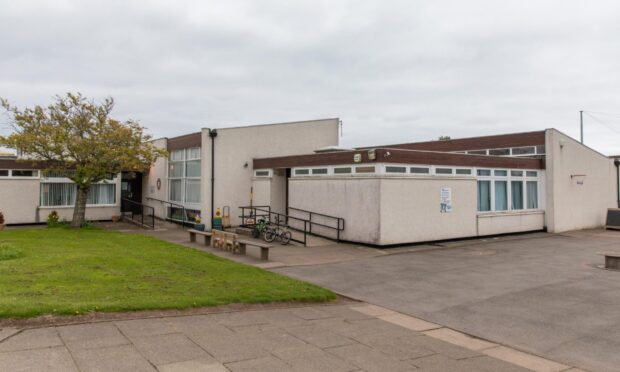Scotland is in desperate need of new talent in the tech-world. Distance learning courses offer a way into this field.
-
Some Courier online content is funded by outside parties. The revenue from this helps to sustain our independent news gathering. You will always know if you are reading paid-for material as it will be clearly labelled as “Partnership” on the site and on social media channels,
This can take two different forms.
“Presented by”
This means the content has been paid for and produced by the named advertiser.
“In partnership with”
This means the content has been paid for and approved by the named advertiser but written and edited by our own commercial content team.
Robert Gordon’s College, one of Scotland’s leading independent schools, has brought together some of the country’s smartest minds to launch RGC Online, a ground-breaking education programme designed to support the future growth of the Scottish tech ecosystem and respond to “a major talent shortage” in the industry.
The online school offers live-taught Highers and tech modules for students across Scotland.
Collaboration is key
Championing a collaborative approach from within its global alumni network, Robert Gordon’s College has worked alongside tech industry experts and academic leaders from Robert Gordon University and Massachusetts Institute of Technology (MIT), to develop the digital education platform, which offers SQA accredited Higher Computing Science in addition to Higher Applications of Mathematics.
RGC Online also offers additional tech-focused modules, designed to equip young people with the skills required for future roles in the sector. Certificates are awarded upon the completion of each module, which include: Artificial Intelligence, Data Science, Cybersecurity, Game Design, and Entrepreneurship. A new Quantum Computing module is also currently in development and will be launched this year.
Students signed up to study a Higher course with RGC Online can add any additional modules they would like to explore.
A new approach to education in Scotland with distance learning
Primarily a digital programme, with live lessons taught twice weekly, these online classes provide students with regular one-to-one support and personalised feedback from their teachers. Live teaching is held on the same days each week and scheduled for early evenings to ensure it does not clash with students’ studies at their usual school.
The RGC Online student experience has been designed so students can interact with their teacher, just as they would in a classroom, and online resources are updated throughout the week, with students completing the work through Google Classroom.
Robin Macpherson, Head of Robert Gordon’s College, said: “RGC Online was created to offer students across Scotland opportunities to learn National Qualification courses that they might not otherwise be able to study.
“This is to create pathways into a career in the ever-expanding world of technology. Our own diploma programme courses sit alongside the Higher course and add value by teaching students about everything from Artificial Intelligence to Quantum Computing to Game Design. It’s a brilliant chance to think about what you want to do in life, and how to get there.”
Alan Duncan, Gartner Research and a member of the RGC Online Strategic Advisory Board, said: “The possibilities for young people to participate in the tech sector continue to grow apace. There is currently a major talent shortage – some would say a crisis – for people with science, technology, engineering, the arts and maths skills (STEAM), and the tech industries offer lots of opportunities for creative thinkers with interest and knowledge of humanities areas such as language, arts and social sciences. These skills are also sorely needed if the tech sector is going to be more human.
“RGC Online is providing new opportunities for students to learn subjects via the diploma modules that help them discover areas of personal potential that are not accessible through traditional local schooling. That’s an injection of innovation and new thinking that the education system in Scotland sorely needs.”
Alistair Forbes, Founding Director and CEO, Scottish Tech Army commented: “The talent challenge for companies in the tech sector is well-known and there is a strong consensus that improving computer science education at school age is crucial. I believe that the approach that underpins RGC Online is a very innovative and exciting contribution to this.
“In addition to providing access to Higher Computing Science courses for pupils for whom this is unavailable in their own school, the addition of the Diploma modules offering more advanced topics such as AI and Quantum Computing will help to prepare students better for further learning and ultimately for exciting and rewarding careers in the tech sector.”
To learn more, visit the RGC Online website.











